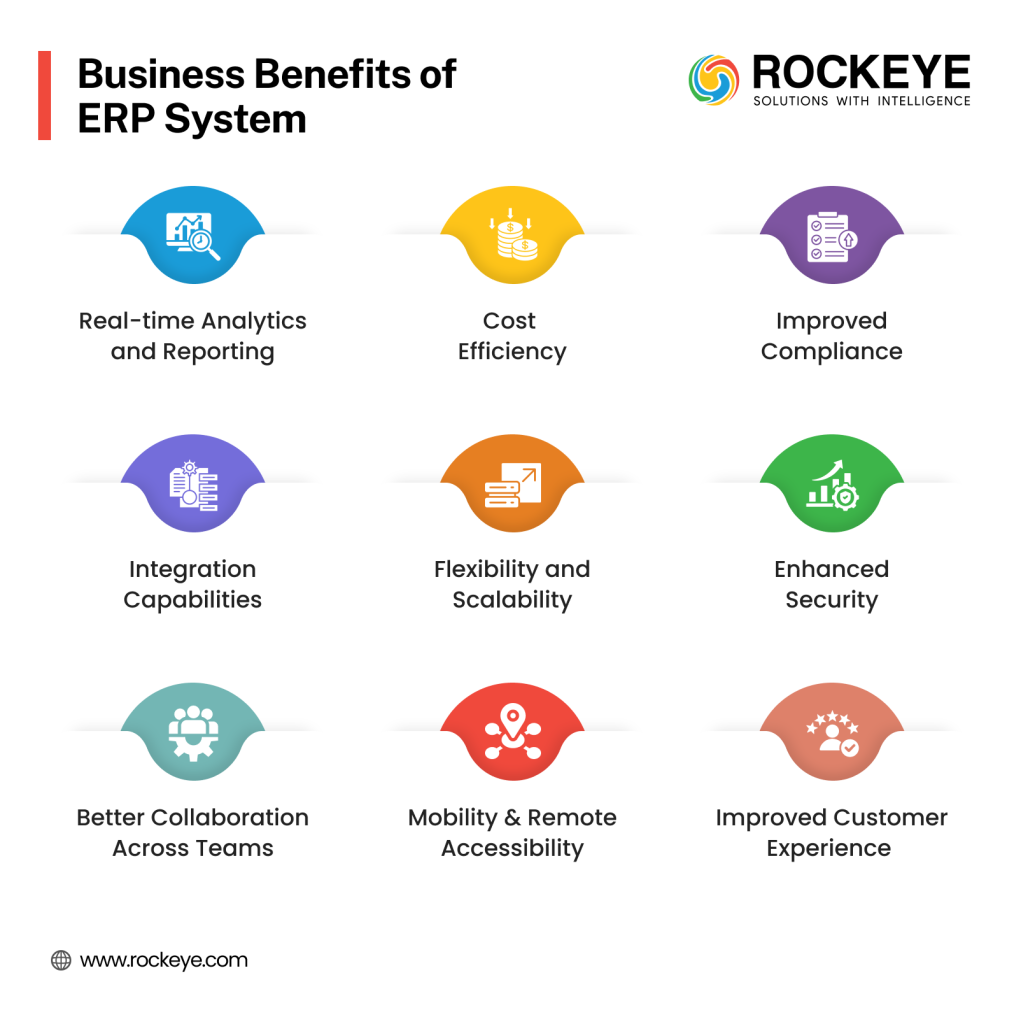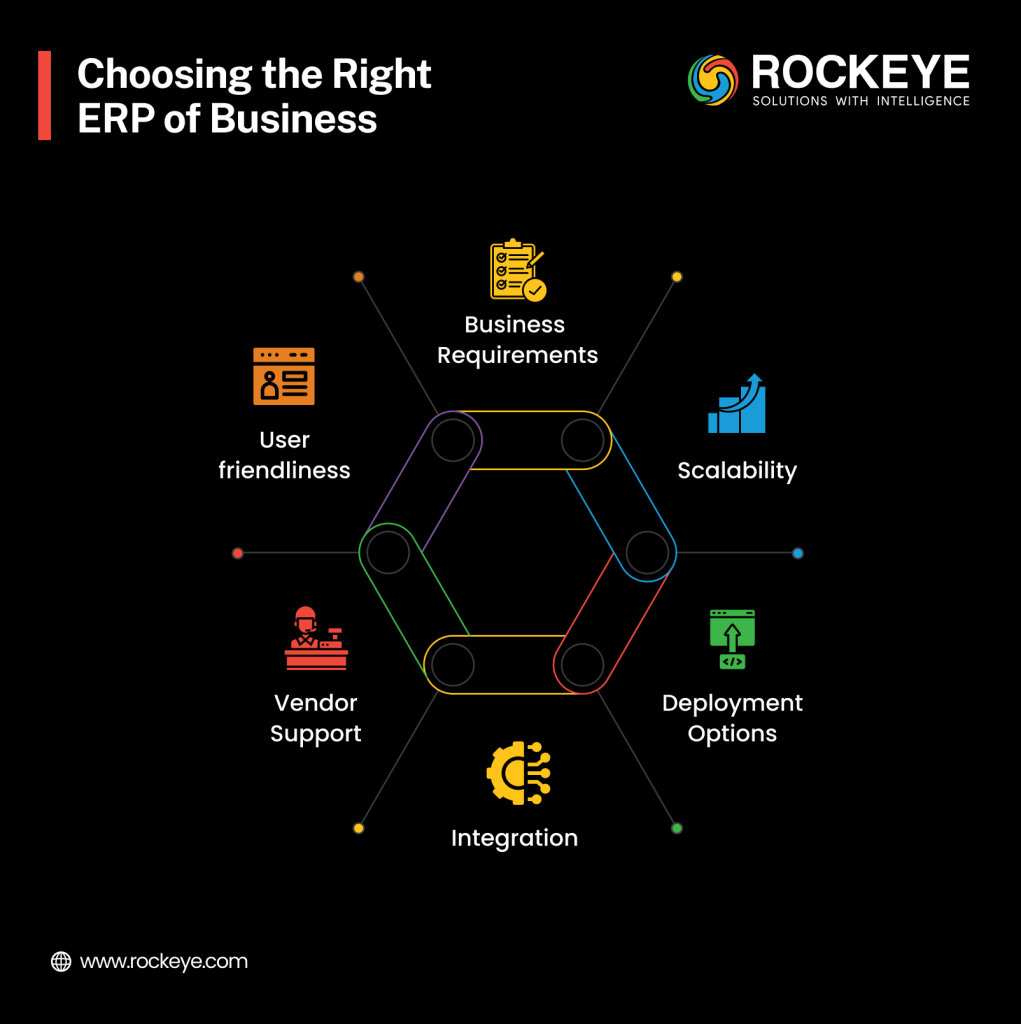In today’s rapidly evolving business landscape, efficiency, accuracy, and adaptability are no longer optional; they are essential. Companies, whether SMEs or large enterprises, face increasing operational complexity, diverse customer demands, and the constant pressure to stay competitive. Enterprise Resource Planning (ERP) systems have emerged as a strategic tool that streamlines operations, centralizes information, and enhances decision-making.
A modern cloud-based ERP system provides businesses with integrated tools to manage finance, supply chain, human resources, inventory, and customer relations seamlessly. Unlike traditional ERP systems, cloud-based solutions allow for real-time data access, scalability, and reduced IT infrastructure costs, making them an ideal choice for businesses looking to grow efficiently.
With the growing adoption of cloud-based ERP software, companies can now focus more on strategic growth rather than operational bottlenecks. But why is ERP so critical today? Let’s explore the challenges businesses face without a robust ERP solution.
What Challenges Do Businesses Face Without ERP?
Businesses operating without an integrated ERP system often encounter a range of operational hurdles:
- Fragmented Data Systems – Companies may use separate softwares for finance, sales, inventory, and HR, leading to inconsistent data and misinformed decisions.
- Inefficient Processes – Manual processes are prone to errors and time-consuming, causing delays in order fulfillment and reporting.
- Poor Customer Experience – Delays, errors, and lack of visibility can negatively impact customer satisfaction.
- Limited Scalability – Businesses may struggle to manage growth efficiently without centralized processes.
- Compliance Risks – Without an ERP, tracking regulatory requirements across departments becomes cumbersome and risky.
For small businesses, these challenges can be even more pronounced due to limited resources and workforce. Cloud-based ERP for small businesses provides a flexible, cost-effective alternative, helping them compete with larger players while maintaining operational excellence.

How Does ERP Help Your Business Grow?
A well-implemented ERP system is more than just software; it is a catalyst for business growth. Here’s how it can transform your operations:
- Centralized Data Access – ERP consolidates data from different departments, providing real-time insights for faster decision-making.
- Process Automation – Routine tasks such as invoicing, payroll, and inventory updates are automated, reducing errors and freeing employees to focus on strategic activities.
- Enhanced Collaboration – Teams across finance, sales, and operations can collaborate efficiently through a unified system.
- Scalability – ERP systems grow with your business, ensuring that increasing operational complexity does not hinder performance.
- Better Customer Service – Accurate data and streamlined workflows enable faster response times and improved customer satisfaction.
Adopting cloud-based ERP systems also enables businesses to access their system anytime, anywhere, and on any device, ensuring continuity and agility in a remote or hybrid work environment.
Key Benefits of Our ERP System

Our cloud ERP software is designed to meet the unique needs of modern businesses, offering a suite of benefits:
Real-time Analytics and Reporting
Turn complex, raw business data into clear, actionable insights with interactive dashboards and automated reports. Gain instant visibility into operations, identify trends, and make informed decisions faster than ever.
Cost Efficiency
Leverage ERP cloud solutions to reduce IT expenses by eliminating the need for costly on-premise servers, maintenance, and software upgrades, allowing businesses to invest more resources into growth and strategic initiatives.
Improved Compliance
Stay ahead of regulatory requirements effortlessly. Cloud ERP systems monitor industry standards, generate audit-ready reports, and maintain accurate records, ensuring your business remains fully compliant without manual oversight.
Integration Capabilities
Our cloud-based ERP software seamlessly connects with existing business tools, third-party applications, and external platforms, creating a unified ecosystem that improves workflow, data consistency, and overall operational efficiency.
Flexibility and Scalability
Whether managing a small business or a large enterprise, cloud-based ERP implementation allows your system to scale with your growth, adapting to increased data, users, and operational complexity without disruption.
Enhanced Security
Protect critical business data with advanced encryption, secure cloud storage, and role-based access controls. Cloud ERP ensures that sensitive information remains safe while supporting compliance and controlled access for users.
Better Collaboration Across Teams
Break down silos by giving finance accounting, HR, sales & invoicing, and operations access to a unified system. Real-time collaboration ensures every team member works with accurate, up-to-date information.
Mobility and Remote Accessibility
Empower employees to access ERP functions securely from any device, anywhere. This flexibility ensures uninterrupted business operations, especially valuable in remote or hybrid work environments.
Improved Customer Experience
With better inventory tracking, faster order fulfillment, and integrated CRM, an ERP cloud system ensures businesses deliver on customer expectations, strengthening loyalty and satisfaction.
Whether you are exploring cloud ERP solutions for a start-up or implementing an enterprise-grade ERP cloud system, our system ensures optimized business operations and better decision-making.
Industry-specific Use Cases of Our ERP
ERP systems are versatile and can be customized for industry-specific needs. Here’s how our ERP cloud system serves different sectors:
1. Manufacturing: Powering Smart Production Lines
- Track real-time production schedules to prevent bottlenecks.
- Monitor inventory and raw material flow with precision.
- Automate supply chain coordination to cut delays.
- Slash machine downtime with predictive maintenance insights.
2. Retail & eCommerce: Driving Sales with Data
- Manage multi-channel orders and stock from one dashboard.
- Decode customer buying patterns to personalize offers.
- Predict demand with AI-powered forecasting.
- Boost retention by delivering faster, smoother shopping experiences.
3. Healthcare: Empowering Smarter Care Operations
- Centralize patient records and medical data securely.
- Automate billing and insurance claims to save time.
- Ensure regulatory compliance with zero manual errors.
- Track medical supply levels to avoid stockouts during emergencies.
4. Logistics & Transportation: Moving Efficiency Forward
- Optimize delivery routes with live GPS tracking.
- Monitor fleet performance and fuel usage in real time.
- Cut idle time and logistics costs with smart scheduling.
- Enhance end-to-end supply visibility across every shipment.
5. Professional Services: Turning Projects into Profits
- Gain real-time control over projects, tasks, and milestones.
- Manage workforce allocation and billable hours effortlessly.
- Automate invoicing and contract management to speed cash flow.
- Boost project profitability with smarter resource insights.
These use cases highlight how a cloud ERP system provides measurable improvements across diverse business environments.

How to Choose the Right ERP for Your Business

Choosing the right ERP is a critical decision. Consider the following factors:
1. Business Requirements
Start by identifying critical pain points, whether in finance, inventory, HR, or supply chain, that require automation. Mapping these needs ensures your ERP addresses real challenges while delivering measurable value.
2. Scalability
Choose ERP cloud software that grows with your business. As transaction volumes, data, and users increase, a scalable system prevents bottlenecks, ensuring long-term efficiency and smooth performance without costly upgrades.
3. Deployment Options
Carefully evaluate whether a fully cloud-based ERP or a hybrid model fits your infrastructure and budget. Cloud-based systems offer flexibility and lower upfront costs, while hybrid models balance control and convenience.
4. Integration
An ERP system should connect seamlessly with your existing tools, such as CRM, accounting software, or eCommerce platforms, to create a unified ecosystem, eliminate data silos, and streamline workflows across departments.
5. Vendor Support
Strong vendor support is crucial for success. Assess the provider’s implementation guidance, training resources, and ongoing assistance to ensure your team adapts quickly and gains maximum value from the ERP.
6. User-friendliness
A user-friendly ERP minimizes resistance to adoption, helping employees embrace the system faster. Clear navigation, intuitive dashboards, and simplified workflows improve productivity while reducing the learning curve across the organization.
Our cloud ERP solutions offer flexible deployment, robust integration, and user-friendly interfaces, making the selection process straightforward and strategic.
Real Success Stories: Businesses Transformed with Our ERP
Several organizations have leveraged our ERP cloud solutions to achieve remarkable results:
1. MRS Holdings
MRS Holdings engages ROCKEYE to transform its enterprise operations with advanced technologies in the Oil & Gas downstream space, resulting in a comprehensive digital transformation.
The Result?
- 100% Automation across 5+ terminals
- 100% Digital transformation
- 60% Increase in efficiency
- 40% Reduction in cost
- 50% Unwanted activities eliminated
- 75% Improvement in turnaround time
- 30% Increase in revenue
- 20% Increase in loading capacity
- 500+ Warehouses & microsites managed
- 60% Improved customer satisfaction
2. Textile Giant
A leading textile manufacturer faced persistent operational inefficiencies as its global demand and product complexity increased. They adopted ROCKEYE ERP to eliminate silos and accelerate growth.
The Result?
- 30% Production efficiency
- 95% Inventory accuracy
- 25% Reduction in wastage
- 40% On-time deliveries
- 30% Improved decision-making
These success stories illustrate the transformative impact of cloud-based ERP systems, showing tangible results in efficiency, cost savings, and business growth.
Conclusion
ERP is no longer a luxury; it is a necessity for businesses seeking operational efficiency, growth, and competitive advantage. Our cloud-based ERP solutions enable small businesses and enterprises alike to centralize operations, automate processes, and make informed decisions in real-time.
By investing in cloud-based ERP software, organizations can enhance productivity, scale efficiently, and focus on strategic goals while leaving operational complexities to the system. Whether you are implementing cloud ERP software for the first time or upgrading an existing system, our solutions are designed to meet your unique business needs.
Frequently Asked Questions
1. What is cloud-based ERP?
A cloud-based ERP is a software solution hosted on remote servers, providing businesses with real-time access to data, scalability, and reduced IT infrastructure costs.
2. How does cloud ERP software benefit small businesses?
It offers affordability, scalability, and centralized management of business processes, allowing small businesses to compete with larger enterprises.
3. Can ERP cloud solutions integrate with existing tools?
Yes. Modern ERP cloud systems can integrate with CRM, accounting, and other business applications to provide a seamless ecosystem.
4. How long does cloud-based ERP implementation take?
Implementation time varies depending on business size and customization, but cloud solutions typically allow faster deployment than traditional on-premise ERP systems.
5. Is cloud ERP secure?
Absolutely. ERP cloud solutions use advanced encryption, secure access controls, and regular backups to ensure data safety and compliance.
6. Can cloud ERP software support multiple industries?
Yes. Our ERP cloud software is customizable and adaptable to manufacturing, retail, healthcare, logistics, professional services, and more.

